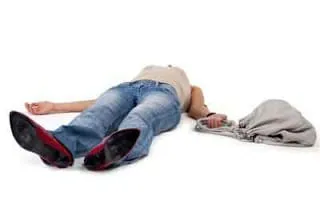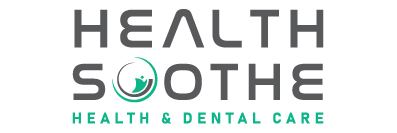What can cause fainting in a dental clinic
The last named should immediately make available any emergency kit, sucker, and oxygen. A doctor or ambulance may be required, so the numbers of these should be kept next to the telephone.
What is the common medical emergency in Dentistry or Dental Health?
- Syncope / collapse
- Hypoglycemic / hyperglycemia
- Shock
- Asthmatic attack
- Anaphylaxis.
Fainting (vasovagal syncope)
 |
| Source:"Juan Fuentes Guerrero" - under creative commons license |
If the patient feels faint or appears about to do so (I.e., looks pale, uneasy, and sweating), his head should be lowered between his knees or the chair should be tipped back so that his feet are up in the air and his head is below the level of his heart. This aids circulation of blood and thus oxygen to the brain. Sometimes spirits of ammonia are held below the nose to speed recovery.
If the faint was caused by fear the patient should be reassured as he comes round. A drink of glucose may be given, it sometimes helps to prevent a feeling of faintness if the patient has a good meal before coming to the surgery for a local Anaesthetic.
Sometimes syncope may be just that fainting episode with no medical importance. It may be caused by a serious illness, condition or disorder.
Every case of fainting should be treated as a medical emergency until the cause is known and signs and symptoms have been treated. Anybody who has recurring fainting should contact their doctor.
Symptoms of vasovagal syncope
- Feeling warm or hot
- Sweating unnecessarily
- Yawning most of the time
- Dizziness
- Blurred vision
- Sometimes a feeling of heaviness in the legs
- Pallor: they become pale
- Cold clammy extremities.
Signs of vasovagal syncope
- There may be week pulse
- The patient may be slumping
- Patient felling over
- There may be a drop in blood pressure.
Causes of fainting (vasovagal syncope)
The major causes of fainting are the decreased blood flow to the brain.
It also includes dehydration, alcohol, and diabetes.
Other causes of fainting include:
1. Anxiety,
2. severe pain
3. Reaction to local anesthesia.
Tests and diagnosis of vasovagal syncope
Medical news today further said you should see your doctor if:
- When there is chest pain
- Irregular heartbeat or palpitations
- If there is a history of heart disease
- If you are pregnant
- If there is diabetes
First aid Management of syncope
- Remove all tight-fitting clothes or garment
- Check the airway whether the patient is breathing
- Check the vital signs I.e pulse rate.
What is the suitable emergency kit for syncope?
- Oxygen cylinders
- Aspirator
- Selection of anesthetic airways
- Re-breathing bag
- Intubation tubes.
- Adult and child size anesthetic face pieces
- Laryngoscope
- Tongue forceps
- Aromatic ammonia
- Amyl nitrate capsules
- Glucose
- Sterile syringes and needles
- Other drugs are suggested by the dentist or anesthetist.
These must be continually checked and kept in perfect order.
Cyanotic Breath-Holding
It happens mostly in pediatric dentistry with an individual child between the ages 6 months and 5 years old. They always cry so hard to cut off oxygen and this trigger an automatic response that makes the child faint.
He/she may turn blue, pass out for about a minute, and seem groggy afterward. They don't do it on purpose. It's a reflex they can't control. Though it's scary to see at first, it's nothing to worry about and might even happen repeatedly.
Pallid Breath-Holding
Low Blood Sugar
The medical term for this is hypoglycemia. It may make your individual patient dizzy, shaky, tired, confused, and blur their vision. You can usually fix the problem if you get a few grams of carbs from juice or candy. Otherwise, your patient could pass out. If that happens, you need medicine called glucagon to help your patient body release more sugar.
Management of Hypoglycemia in Dentistry
- Give oral glucose if the patient is conscious
- In unconscious state give intravenous glucose or 5mls of 50% dextrose
Hyperglycemia: This is a medical term used in describing an abnormally high blood sugar level. This usually occurs in a poorly controlled diabetic patient.
Diabetes
High blood sugar from diabetes can damage the nerves in your patient body that help keep their blood pressure steady. That could lead to unusually low blood pressure that makes you pass out.
Types of Diabetes
- Type 1 – Found in children below 40 years of age, also known as early-onset diabetic mellitose.
- Type 2 – Found in adult above 40yrs of age, also known as maturity onset diabetic mellitose.
Signs And Symptoms of Hyperglycemia
- Increase in taste
- Frequent urination
- Diabetic Ketoacidosis (OKA): This is a metabolic disorder found in the diabetic patient.
Management of Hyperglycemia in Dentistry
- Give insulin if the person belongs to type 1 type of diabetic
- Type 2 – Give oral hypoglycemic drugs then insulin. The First start with insulin then proceeds to oral hypoglycemic drugs.
Certain Medicine
Some medications, like high blood pressure drugs and antidepressants, affect the way your patient heart and blood vessels act when they stand. This can reduce their blood pressure and make them faint.
Insulin is usually given to lower their blood sugar when they have diabetes. Diabetes might cause hypoglycemia that also make them pass out. In older people, different drugs sometimes combine with illness and the situation of your patient. For example individual patient standing in a hot room -- this can make them faint during oral surgery.
Seizure
This cause Ia sudden change in the brain's normal electrical signals. Some symptoms, like eyes rolling back and jerking movements, may be similar to breath-holding. The difference is seizures make your patient unconscious for minutes, not seconds, and might make them lose control of your bladder. And they may experience flashes of light or get unusual smells or tastes with no obvious source. Stop all forms of treatment and call a doctor if you suspect a seizure.
Heart Problems (cardiac syncope)
Damaged heart muscle, blocked or narrowed blood vessels (coronary heart disease), and other kinds of ticker trouble can stop enough blood loaded with oxygen from getting to your patent brain. When it makes them pass out, it's called cardiac syncope.
It may happen without any sign, sometimes repeatedly over a period of time/weeks. Remove all forms of treatment from your patient mouth and call your doctor right away if you suspect this or your patient also experience chest pain, arrhythmia, fatigue, or other symptoms.
Hyperventilation
You patient feel like they can't get enough air, so they start to breathe in more quickly. Though it's unclear why it happens, this makes blood vessels around their brain to shrink, which limits oxygen and makes them lightheaded and possibly faint.
Fear of a dentist, rather than a physical problem, usually causes it, tell your patient to relax and hold their breath. Their hands, feet, and mouth might also tingle.
Excessive Alcohol can cause Fainting (vasovagal syncope)
Too Tight Fitting cloth can cause Fainting (vasovagal syncope)
Carotid sinus syncope, or "tight-collar syndrome," happens when something pushes your patient nerves too hard towards a wide part of their carotid artery in their neck. This interferes with blood flow to the brain and makes your patient faint. It happens quickly and without other symptoms like nausea, paleness, and sweating. In some cases, if it hasn't happened before, it may be a sign of narrowed arteries that need treatment.
Asthmatic attack can cause Fainting (vasovagal syncope)
Mechanism of Initiating Attack
Signs and Symptoms of Asthma.
- Shortness of breath
- Tightness in the chest
- Wheezing and Coughing
- Cyanosis shortage of oxygen in the blood
- Tachycardia: Increase the pulse rate or heart rate.
Management of Asthmatic Patient During Oral Surgery
- Terminate all forms of treatment
- Remove all forms of materials and instrument from the patient mouth
- Seat the patient in an upright position with the arms throw forward over a chair back
- Administer broken dilators
- Administer oxygen if needed
- Administer hydrocortisone too.
- If the patient is not improving please call for medical assistance.
Your Patient is Dehydrated
Sources
- American Diabetes Association: "Hypoglycemia (Low Blood Glucose)."
- American Heart Association: "Syncope (Fainting)."
- AsthmaSymptoms.org: "Fainting -- A Serious Symptom of Asthma."
- Boston College Alcohol and Drug Education Program: "Blacking Out Vs. Passing Out."
- Child Neurology Foundation: "Breath-Holding Spells."
- Emergency Medicine Journal: "Syncope And Breath Holding."
- Encyclopaedia Britannica: "Syncope."
- Familydoctor.org: "Fainting."
- Harvard Health Publishing: "Hypoglycemia."
- Heart Rhythm Society: "Fainting."
- Mayo Clinic: "Vasovagal syncope," "Dehydration."
- Medscape: "Carotid Sinus Hypersensitivity."
- Merck Manual: "Shortness of Breath," "Fainting."
- NHS Choices: "Postural tachycardia syndrome (PoTS)," "Breath-holding spells in children," "Fainting."
- WebMD Health: "a-to-z-guides slideshow," "what makes you faint?"



